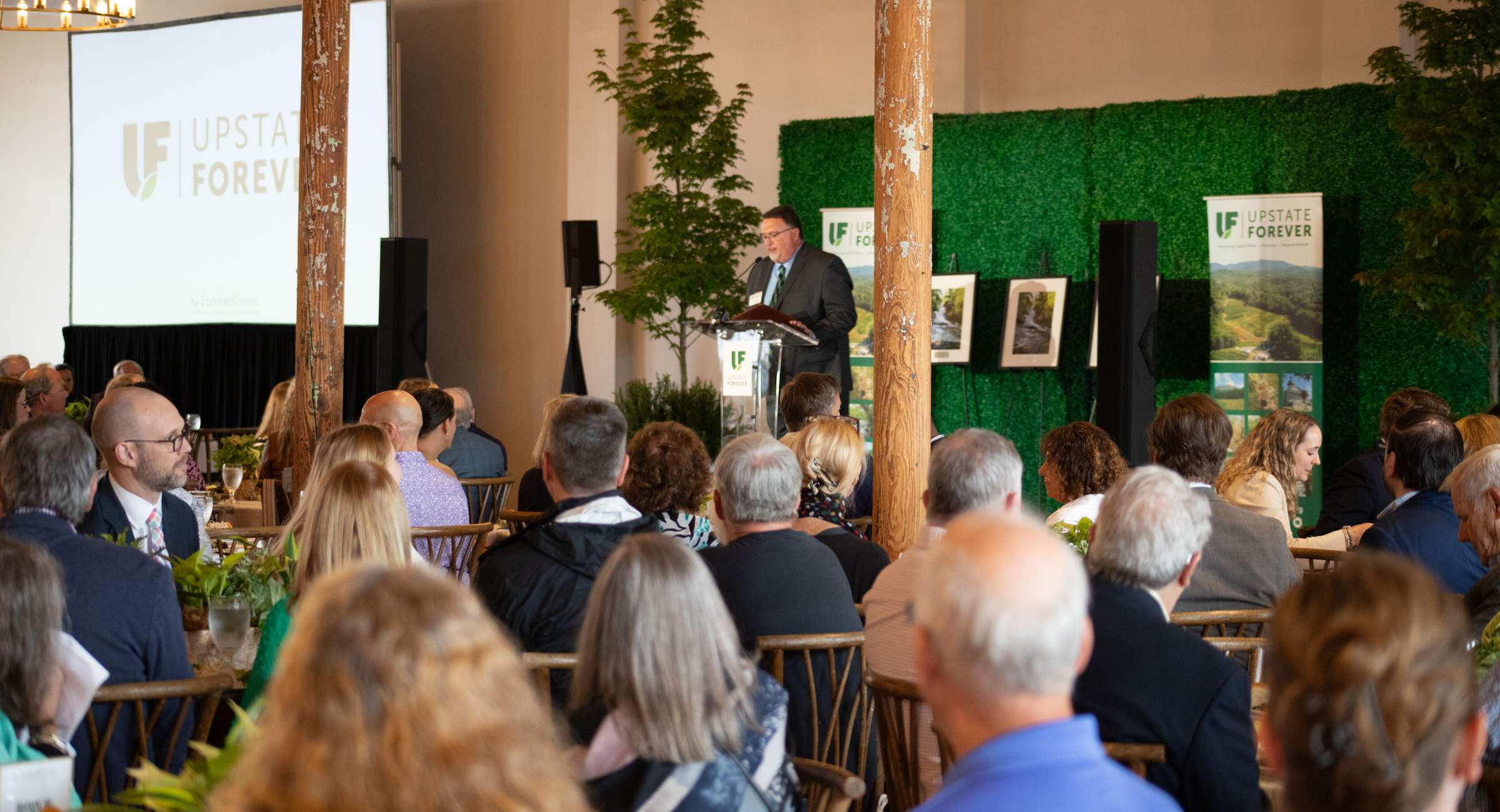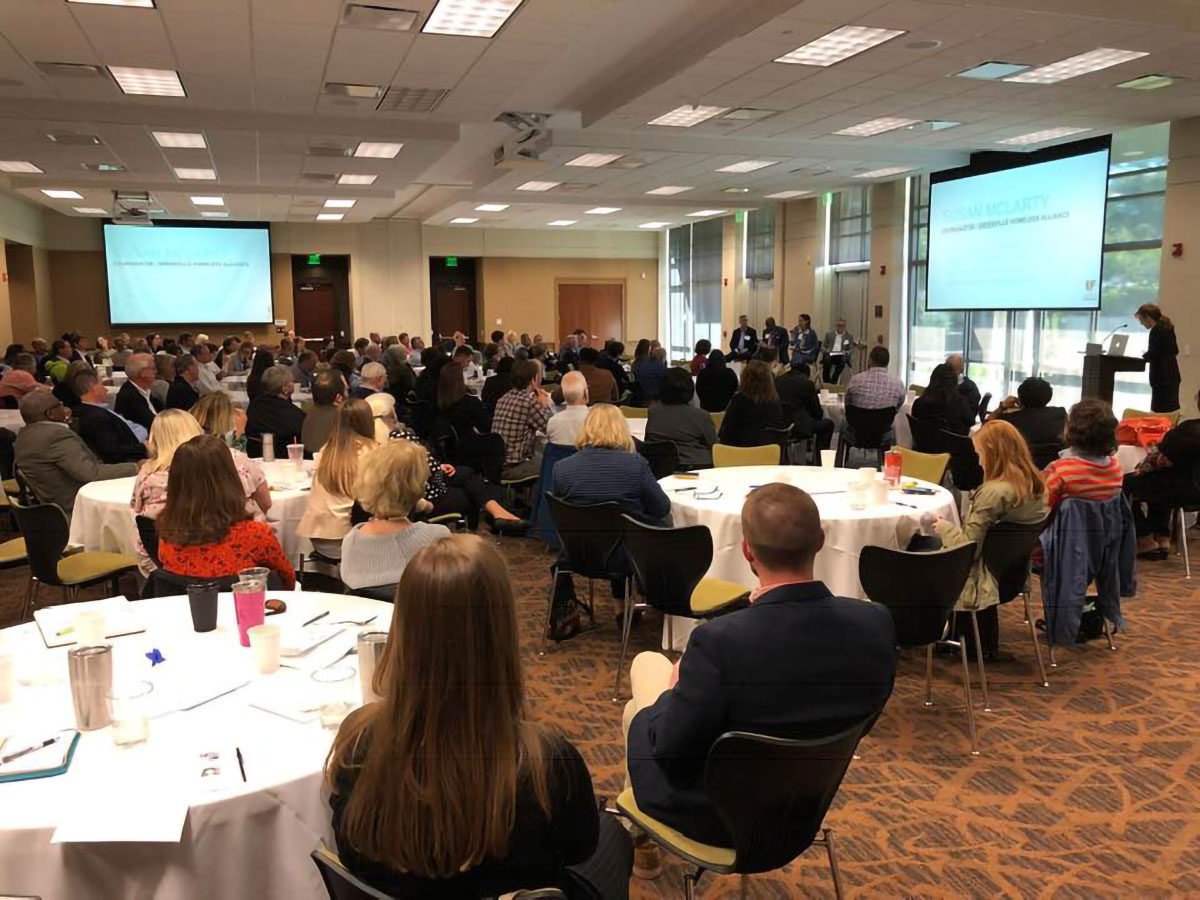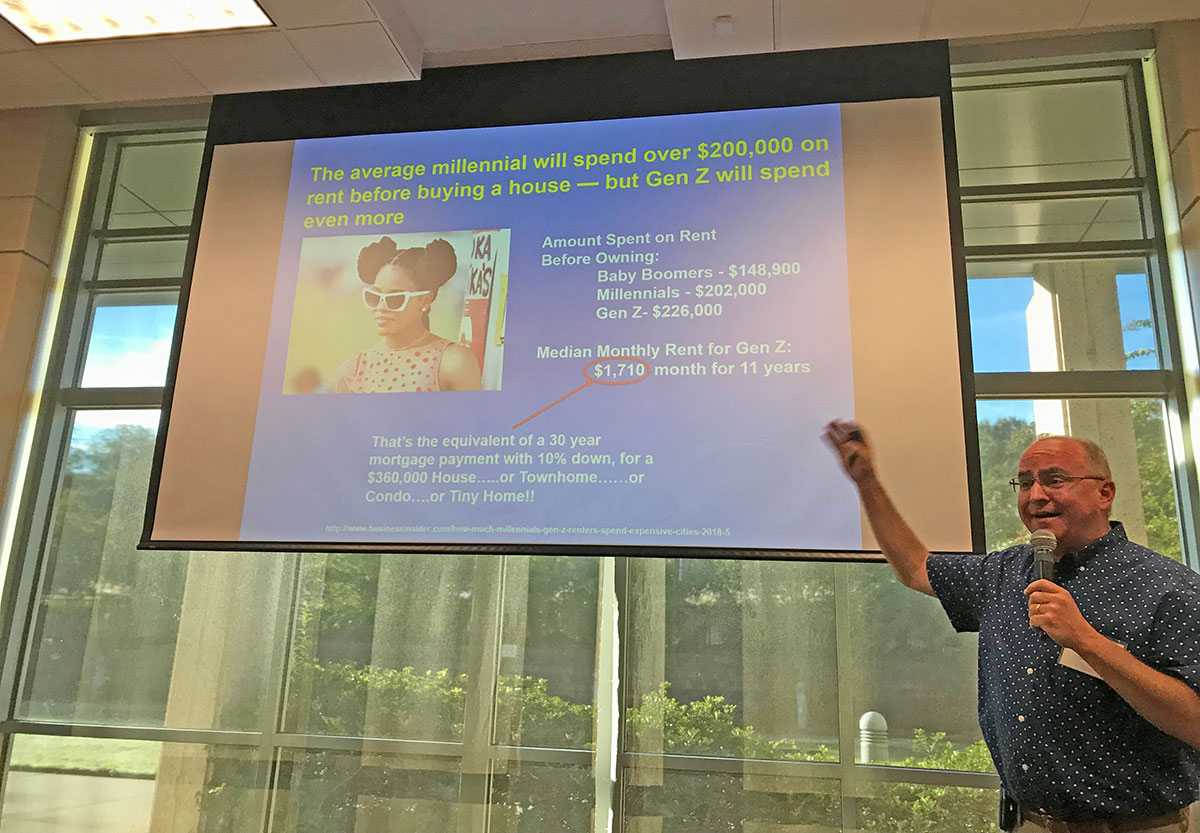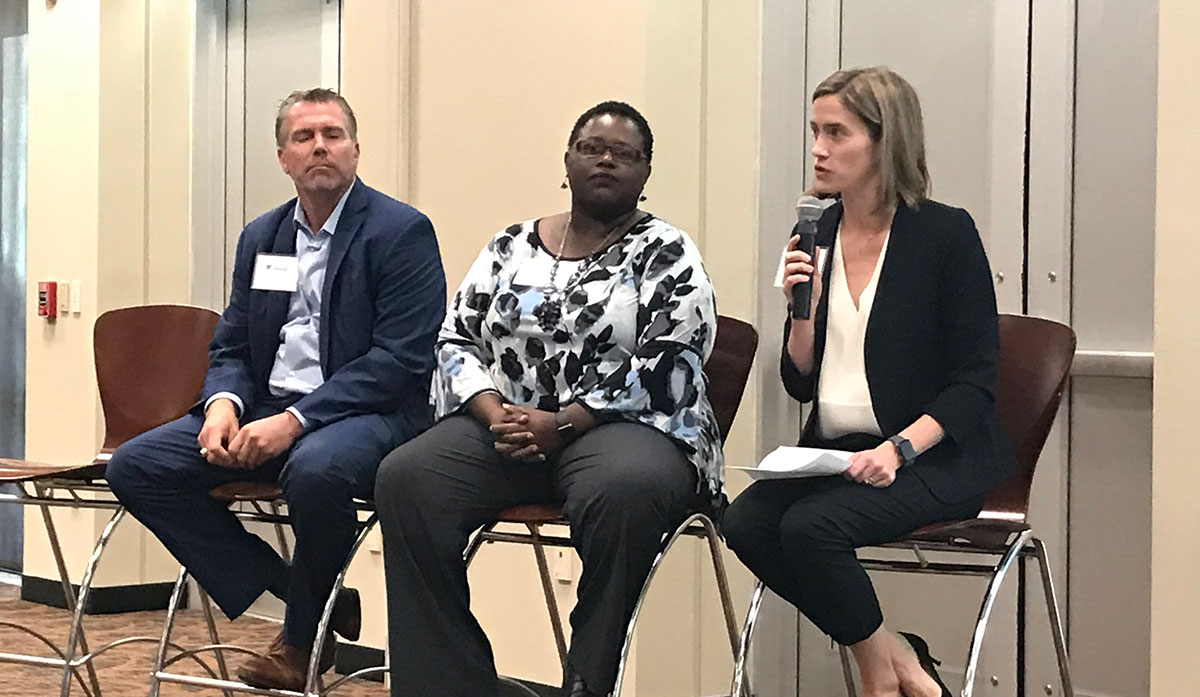apply for the winter 2026 citizens planning academy!
The Citizens Planning Academy is returning early in the new year with a new schedule. Learn more and apply today!

Greenville Housing Forum Recap
October 25th 2018

Nearly 200 attendees gathered at the Kroc Center on Friday October 19 for a Greenville County Housing Forum hosted by Upstate Forever in conjunction with numerous community partners. Forum attendees learned how shifting demographics are leading to increased demand for walkable, affordable urban living. They also explored how “missing middle” homes types could help meet that demand by expanding housing diversity at a variety of price points, while also using land efficiently – protecting rural character and preserving critical natural resources.
Karen Parolek from Opticos Design, a nationally recognized architecture and urban design firm, explained that missing middle home types were a critical component of neighborhoods built prior to 1940. Because they seamlessly integrate with the character of single-family homes, they can help build “hidden density” that supports local businesses and public transportation. In contrast, neighborhoods built in the last several decades are much more homogenous, with single-family detached homes built on relatively large lots being the sole choice for homebuyers.
Ms. Parolek explained that zoning codes and outdated land development regulations often make construction of missing middle housing impractical, or simply illegal. In Greenville City and County, for instance, vast areas zoned as single-family residential allow only single-family detached homes. Townhomes, duplexes, and accessory dwelling units cannot be built in such areas. Even when these home types are allowed, according to Ms. Parolek, excessive parking requirements and setbacks – often unnecessary in walkable areas – limit their construction.

Also presenting at the forum was John Hunt from MarketNsight. Mr. Hunt presented data illustrating how first-time home-buying millennials and down-sizing baby boomers are more than willing to give up home and lot size in exchange for living closer to amenities. The issue, according to Hunt, is that developers – despite shifting demand – have continued delivering conventional home products farther and farther from the city center. Instead, says Hunt, the home building industry needs to take a cue from apartment developers – building smaller living options in the right locations, offered at competitive price points.
View John Hunt's presentation slides (PDF)
Bogue Wallin, Chair of the newly formed Greenville Housing Trust, led a session highlighting how the lack of affordable housing impacts us all – whether directly or indirectly. Testimonials from Greenville citizens showcased how the housing situation has affected them directly, while Helen Sanders (Hughes Development), JoKeitha Seabrook (United Way) and Carl Sobocinski (Table 301 Restaurant Group) discussed impacts to teachers and public education, students and their ability to succeed, and service workers and downtown vibrancy.

A panel of local developers and elected officials moderated by Homeless Alliance Coordinator Susan McLarty explored opportunities and challenges for missing middle housing in Greenville City and County. Homes of Hope CEO Don Oglesby, TRG Communities President Jeff Randolph, City Councilwoman Amy Ryberg Doyle, and County Councilman Ennis Fant discussed the need to overcome challenges such as neighborhood opposition to density and outdated zoning and land use regulations, as well as the opportunity to participate in the city and county’s upcoming 10-year comprehensive plan updates. Closing remarks by County Council Chairman and Mayor Knox White rounded out the event.
The Greenville County Housing Forum was made possible through the support of Piedmont Natural Gas, the Greater Greenville Association of Realtors, Habitat for Humanity, the Piedmont Health Foundation, the Greenville Housing Fund, the American Institute of Architects, and the City of Greenville. We are also thankful to the Kroc Center for their generous contribution of venue space, staff support from the Greenville Homeless Alliance and Greenville Home Builders in planning the event, and assistance from the Appalachian Council of Governments in facilitating continuing education credits for forum attendees.
